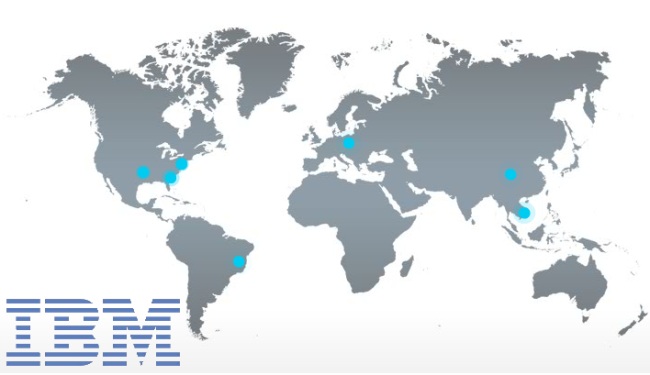
IBM may not make the news much nowadays with big consumer product announcements, but that hasn’t stopped the long-time computer giant from growing. In fact, IBM’s market value has now officially passed that of Microsoft, making it the second-most valuable technology company in the world, after Apple, and the fourth most-valuable company in the world, overall.
The value of IBM jumped to $214 billion on Thursday, while Microsoft’s market value dropped to $213.4 billion, reports Bloomberg. This marks the first time since 1996 that the two companies have been this close in price.
IBM’s rise is the product of CEO Sam Palmisano’s strategy to focus on software and consulting businesses, rather than PC manufacturing. In 2005, Palmisano sold IBM’s PC business to Lenovo. Since then, the company has spent a reported $25 billion investing in its software and other business ventures. The move has led to an increase in per-share profit for more than 30 straight quarters. And sales have risen 20 percent from 2001 through 2010.
Microsoft, on the other hand, has gone in the opposite direction. In 2000, Microsoft’s worth was more than $430 billion. The market downfall in 2008 forced its value down to $135 billion as of 2009. And it has since increased in value as the markets grew stronger.
Revenue from its Windows and Office software businesses account for approximately 60 percent of its total, or about $69.9 billion as of its previous fiscal year, which ended in June. Success in with these products, as well as Xbox, helped boost Microsoft’s sales last quarter, but the company continues to loose money on its online services ventures, which includes the Bing search engine. That segment brought in increased revenue in the last quarter, about $662 million, but its operating losses grew to $728 million.
Editors' Recommendations
- How Intel and Microsoft are teaming up to take on Apple
- As a recent Mac convert, here’s what has surprised me most
- Use Office? Your PC could be at risk due to this Microsoft change
- Microsoft brings an Xbox Cloud Gaming feature to Edge to improve visuals
- Microsoft CEO would ‘welcome’ iMessage on Windows


